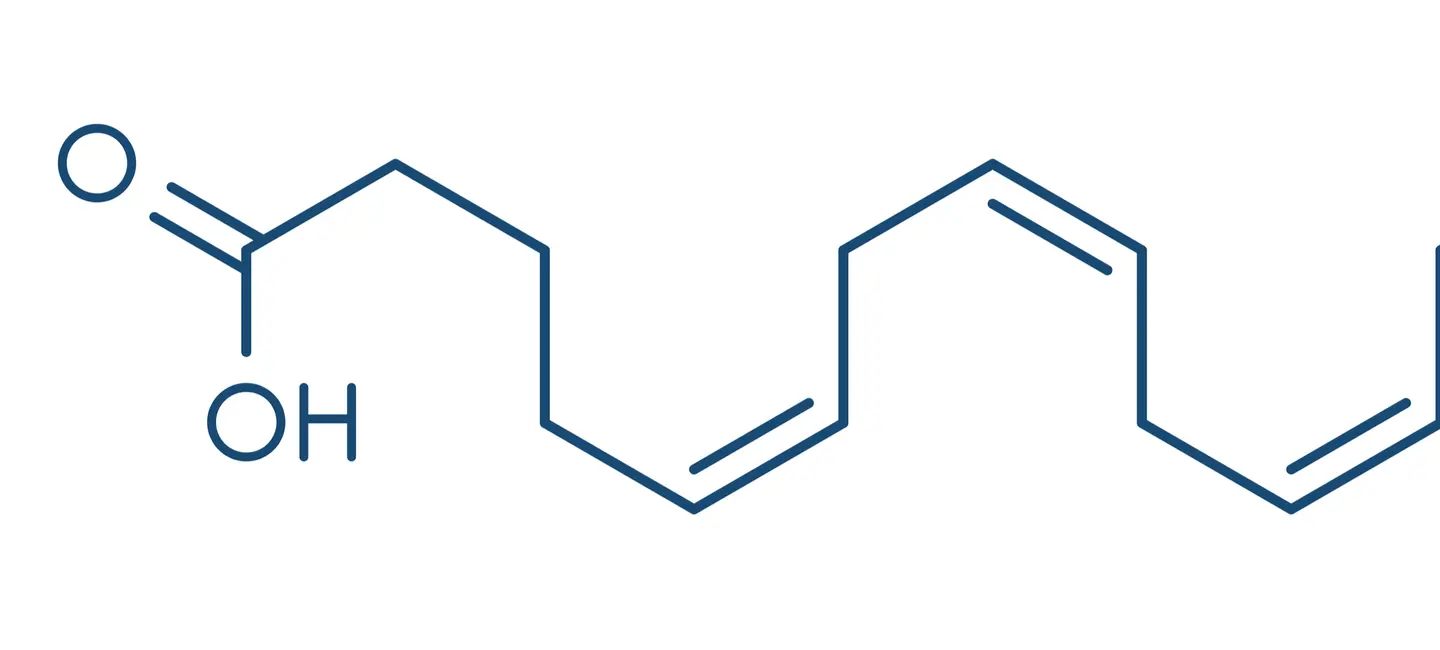
Eicosapentaenoic acid (EPA) is an omega-3 fatty acid that is found along with docosahexaenoic acid (DHA) in cold-water fish, including tuna and salmon.
EPA prevents the blood from clotting easily, reduces triglyceride levels in the blood, and has effects that might reduce pain and swelling.
EPA is a US FDA-approved prescription drug for reducing triglyceride levels. As a supplement, people most commonly use EPA for heart disease, preventing heart attack, and depression. It is also used for chemotherapy-related side effects, diabetes, recovery after surgery, and many other purposes, but there is no good scientific evidence to support many of these other uses.
Don't confuse EPA with similar fatty acids, such as alpha-linolenic acid and DHA. See the separate listings for algal oil, alpha-linolenic acid, DHA, fish oil, and krill oil.
Is It Effective?
NatMed Pro rates effectiveness based on scientific evidence according to the following scale: Effective, Likely Effective, Possibly Effective, Possibly Ineffective, Likely Ineffective, Ineffective, and Insufficient Evidence to Rate.
- High levels of fats called triglycerides in the blood (hypertriglyceridemia). Taking a prescription drug containing EPA (Vascepa) by mouth lowers triglycerides levels by 33% in people with very high levels. It's not clear if taking EPA supplements has the same effect.
- Heart disease. Taking a prescription drug containing EPA (Vascepa) by mouth along with statin drugs reduces complications such as heart attack and stroke in people with heart disease. It's not clear if taking EPA supplements helps.
- Depression. Taking pure EPA or fish oil containing at least 60% EPA by mouth reduces symptoms of depression in some people. It might work best when used along with antidepressant drugs.
- Heart attack. Taking a prescription drug containing EPA (Vascepa) by mouth along with statin drugs reduces the risk for heart attack in people at risk for heart disease. Taking EPA supplements by mouth also seems to help.
There is interest in using EPA for a number of other purposes, but there isn't enough reliable information to say whether it might be helpful.
Is it Safe?
When taken by mouth: EPA is likely safe when taken as a prescription drug or in fish oil. It's been used safely for up to 7 years. Most side effects are mild and might include nausea, diarrhea, or belching. Taking EPA with meals can reduce these side effects.
EPA is possibly safe when taken as part of an oil from algae (algal oil) for up to 12 weeks. But taking EPA and other omega-3 fatty acids in doses greater than 3 grams daily is possibly unsafe. These higher doses might slow blood clotting and increase the chance of bleeding. Limit intake from supplements to no more than 2 grams daily unless approved by a healthcare provider.
Special Precautions & Warnings:
Pregnancy and breast-feeding: There isn't enough reliable information to know if EPA is safe to use when pregnant or breast-feeding. Stay on the safe side and stick to food amounts.
Irregular heartbeat (arrhythmia): EPA might increase the risk of irregular heartbeat. If you have had an irregular heartbeat, talk with your healthcare provider before you start taking EPA.
Aspirin-sensitivity: If you are sensitive to aspirin, EPA might affect your breathing.
Medications for high blood pressure (Antihypertensive drugs)
Interaction Rating=Moderate Be cautious with this combination.
EPA might lower blood pressure. Taking EPA along with medications that lower blood pressure might cause blood pressure to go too low. Monitor your blood pressure closely.
Medications that slow blood clotting (Anticoagulant / Antiplatelet drugs)
Interaction Rating=Moderate Be cautious with this combination.
EPA might slow blood clotting. Taking EPA along with medications that also slow blood clotting might increase the risk of bruising and bleeding.
Herbs and supplements that might lower blood pressure: EPA might lower blood pressure. Taking it with other supplements that have the same effect might cause blood pressure to drop too much. Examples of supplements with this effect include andrographis, casein peptides, L-arginine, niacin, and stinging nettle.
Herbs and supplements that might slow blood clotting: EPA might slow blood clotting and increase the risk of bleeding. Taking it with other supplements with similar effects might increase the risk of bleeding in some people. Examples of supplements with this effect include garlic, ginger, ginkgo, nattokinase, and Panax ginseng.
There are no known interactions with foods.
EPA is commonly consumed in the diet. Sources include cold-water fish, including mackerel, herring, tuna, halibut, salmon, cod liver, whale blubber, and seal blubber.
In supplements, EPA has most often been used by adults in doses of 1-2 grams by mouth daily for up to 6 months. Speak with a healthcare provider to find out what dose might be best for a specific condition.
Acide Eicosapentaénoïque, Acide Éthyle-Eicosapentaénoïque, Acide Gras Essentiel, Acide Gras d'Huile de Poisson, Acide Gras N-3, Acide Gras Omega, Acide Gras Oméga 3, Acide Gras Polyinsaturé, Acide Gras W3, Acido Eicosapentaenoico, EPA, E-EPA, Eicosapentanoic Acid, Essential Fatty Acid, Ethyl Eicosapentaenoic Acid, Ethyl-Eicosapentaenoic Acid, Ethyl-EPA, Fish Oil Fatty Acid, Icosapent Ethyl, N-3 Fatty Acid, Omega Fatty Acid, Omega 3, Oméga 3, Omega-3, Omega 3 Fatty Acids, Omega-3 Fatty Acids, Polyunsaturated Fatty Acid, PUFA, W-3 Fatty Acid.
Information on this website is for informational use only and is not intended to replace professional medical advice, diagnosis, or treatment. While evidence-based, it is not guaranteed to be error-free and is not intended to meet any particular user’s needs or requirements or to cover all possible uses, safety concerns, interactions, outcomes, or adverse effects. Always check with your doctor or other medical professional before making healthcare decisions (including taking any medication) and do not delay or disregard seeking medical advice or treatment based on any information displayed on this website.
© TRC Healthcare 2024. All rights reserved. Use and/or distribution is permitted only pursuant to a valid license or other permission from TRC Healthcare.
